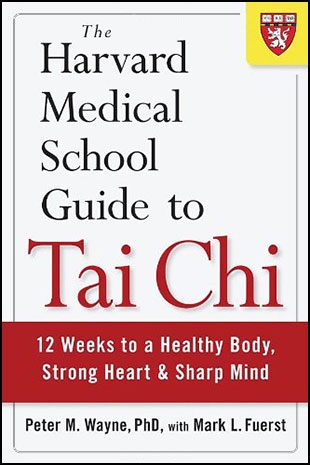"This philosophical influence contributes to the richness of Tai Chi as an exercise sought after for body, mind, and spirit, and these philosophical aspects likely contribute to its therapeutic effects. Importantly, many teachers explicitly refer to these teachings in their classes, and some have calligraphy wall hangings, books, and other expressions of these principles around the Tai Chi studio to remind students of these ideas and to create a larger context for the practice of these exercises. This influence may be as relevant in China as it is in the West. Tai Chi scholar Douglas Wile wrote that 'for the tens of millions of practitioners in China today, Tai Chi fills the spiritual vacuum left by the collapse of socialist idealism.'
"On the front door of my Tai Chi school, I have a copy of a poem entitled 'Hall of Happiness,' written by one of my teacher's teachers, Grand Master Cheng Man Ching — a poem he hung on the front door of what was one of the first Tai Chi studios established in the West.
"May the joy that is everlasting gather in this hall. Not the joy of a sumptuous feast, which slips away even as we leave the table; nor that which music brings — it is only of a limited duration. Beauty and a pretty face are like flowers; they bloom for a while, then die. Even our youth slips swiftly away and is gone.
"No, enduring happiness is not in these. . . . We may as well forget them, for the joy I mean is worlds away from these. It is the joy of continuous growth, of helping to develop in ourselves and in others the talents and abilities with which we were born — the gifts of heaven to mortal men. It is to revive the exhausted and to rejuvenate that which is in decline, so that we are enabled to dispel sickness and suffering.
"Let true affection and happy concourse abide in this hall. Let us here correct our past mistakes and lose preoccupation with self. With the constancy of the planets in their courses or of the dragon in his cloud wrapped path, let us enter the land of health and ever after walk within its bounds.
"Let us fortify ourselves against weakness and learn to be self-reliant, without ever a moment's lapse. Then our resolution will become the very air we breathe, the world we live in; then we will be as happy as a fish in crystal waters. This is the joy which lasts, that we can carry with us to the end of our days. And tell me, if you can; what greater happiness can life bestow?"
— Cheng Man Ching, New York City, 1973
